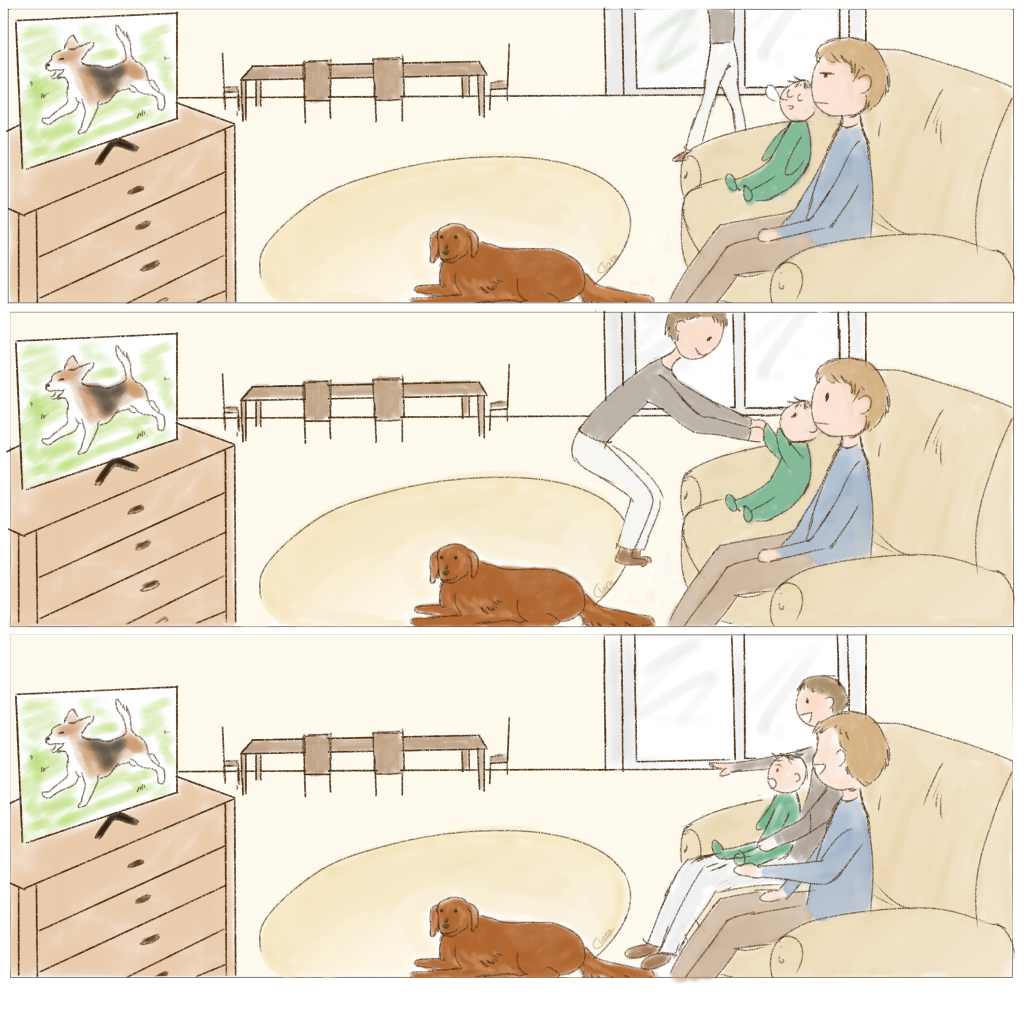Can my child learn from watching television?

Children can appear very focused in front of a television. Unfortunately, this does not mean they are actively learning. Studies show that children under the age of 3 do not learn very well, if at all, from television or videos. As children get older, television can be an additional teaching aid if used correctly. The content and context of television watching are important. The content should be connected to real life, so that children can actively make connections with and build on personal experiences. The context should include caregivers (or peers) who explain and expand upon television content.
Ideally, television should be co-viewed, a child and caregiver watching (and interacting) together. For example, while watching a short documentary about domestic animals, a caregiver can ask about content in the video: “Granny has a kitty! It looks just like that one.”
Of course, it is quite a feat to continuously interact with a child, while taking care of housework or working from home, or after a sleepless night or hectic day at work. If a caregiver needs some time to finish up some work or take a breather from the hullabaloo of life, they can interact with their child after they have viewed the tv show (see also Are screens always bad?).
Join us next time when we will talk about different kinds of screens and which are the best for language development.
The scientific sources for our comic:
Lytle, S. R., Garcia-Sierra, A., & Kuhl, P. K. (2018). Two are better than one: Infant language learning from video improves in the presence of peers. Proceedings of the National Academy of Sciences, 115(40), 9859-9866.
